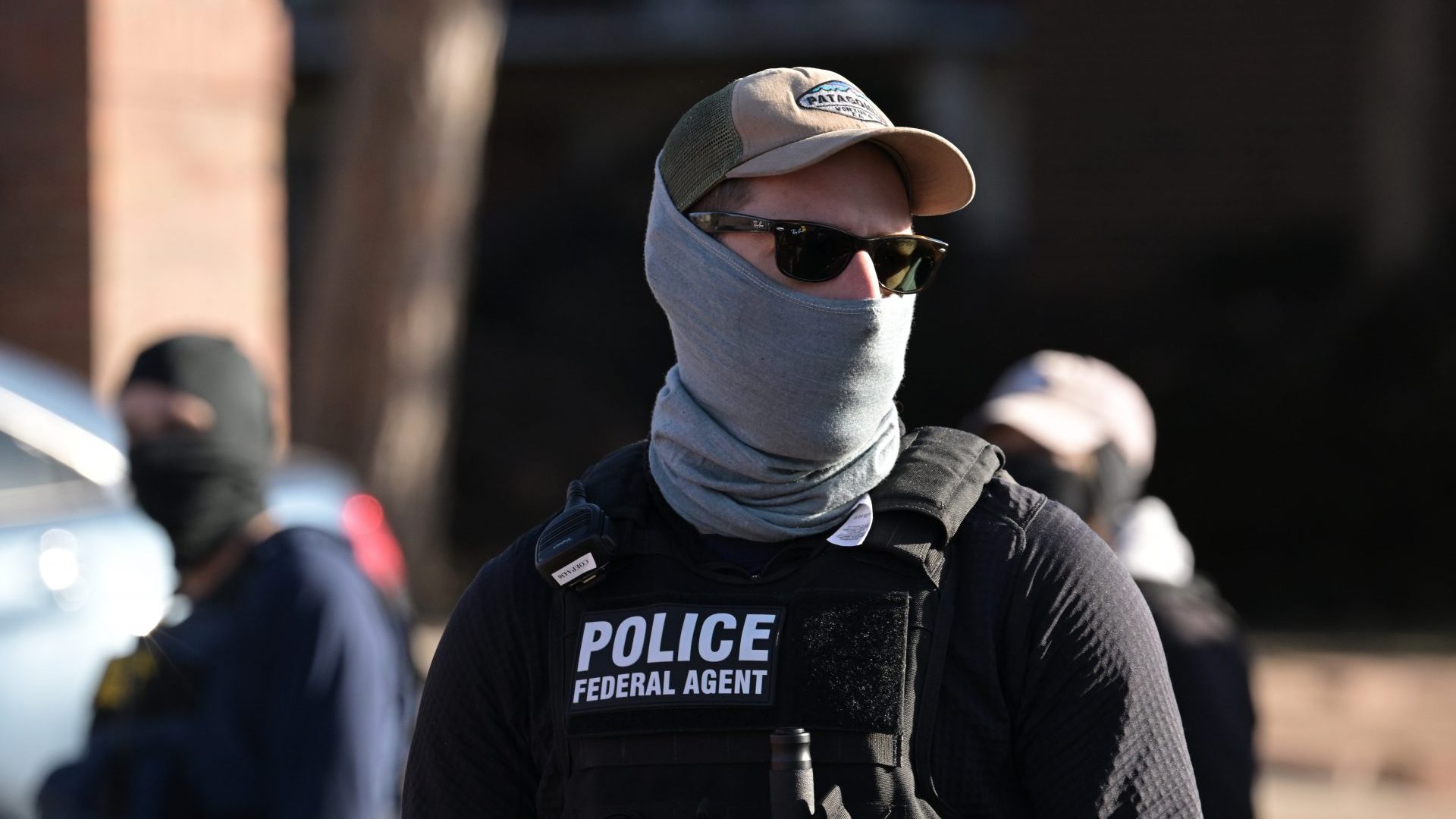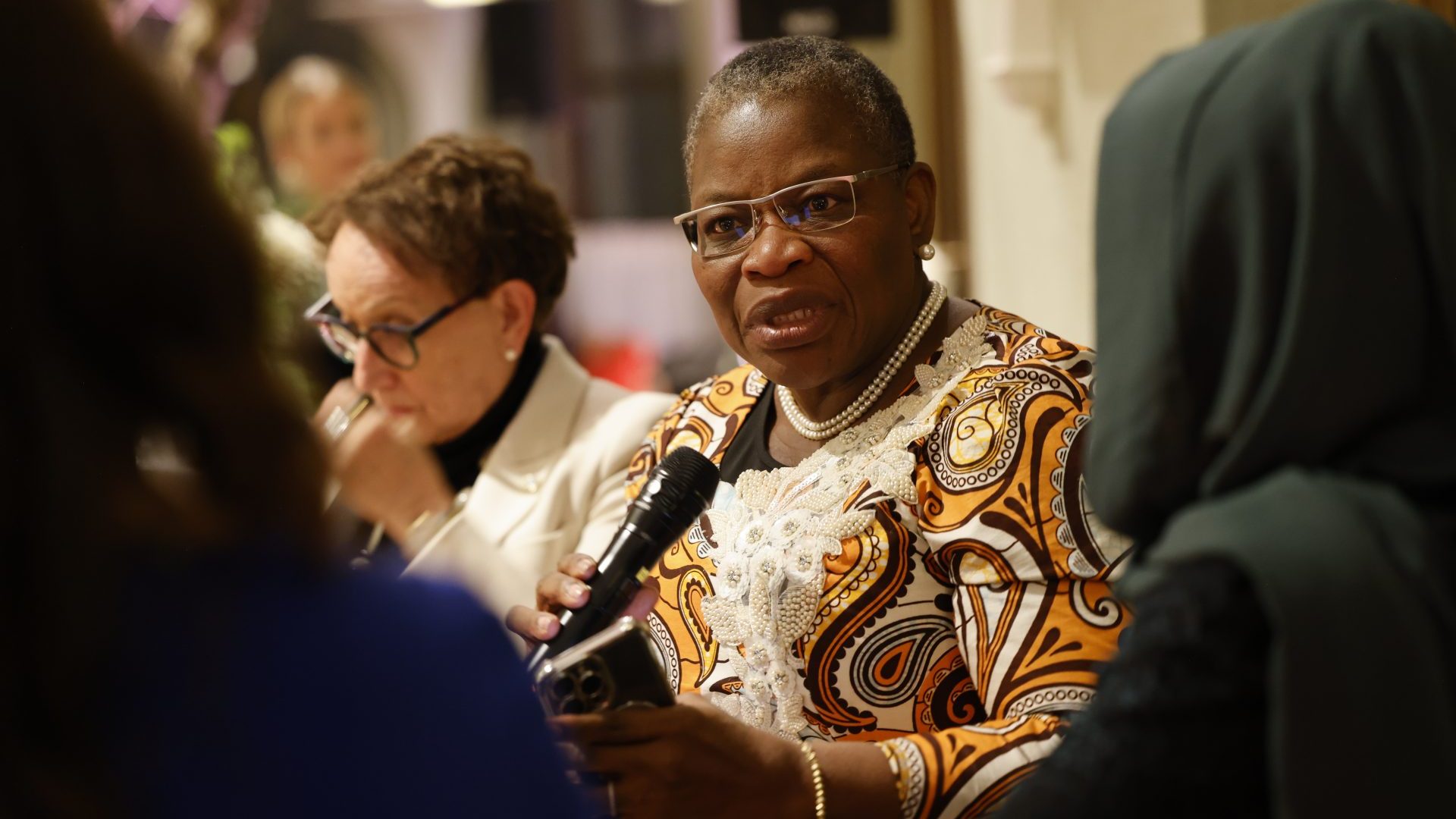For the past six months, my friends kept asking me whether I was worried about being in the US as a foreigner under the Trump administration.
My answer on election night was “no”. My answer was still “no” on inauguration day. My answer was “no”, even when ICE (Immigration and Customs Enforcement) started rounding up students at Columbia University, where I was finishing my master’s degree. The arrest of Mahmoud Khalil, the student activist, had no effect on me. I never picked up the leaflets telling foreign students what to do in a surprise encounter with the authorities.
I kept saying “no” because on paper, I was Donald Trump’s perfect immigrant. I am a white, Catholic man from Hungary; a race, a religion and a country he is openly fond of. As a political journalist, I never covered Israel and Palestine, I never wrote an op-ed about Trump (at least not in English), nor did I report from the campus protests.
I wasn’t worried about myself – only about my friends. Muslim students who took part in demonstrations calling for a ceasefire in Gaza. European journalists who questioned Benjamin Netanyahu’s regime. Chinese people who wouldn’t risk travelling home for the holidays. On any given day, Trump could come up with something that would jeopardise their safety, and the university could no longer protect anyone.
The administration cited antisemitism and national security concerns for curbing students’ rights, which resonated well with the MAGA crowd, but had little to do with Trump’s actual intentions. From the moment he targeted Ivy League universities, it was clear that my friends were political toys in Trump’s effort to crack down on dissenting voices. It didn’t matter if universities complied with or resisted his demands because there was nothing to negotiate about in the first place.
I knew it because I’ve seen it before. In 2018, Viktor Orbán’s government booted Central European University out of Budapest for makeshift administrative reasons, when it was obvious that the George Soros-founded institution was being persecuted for its liberal views.
Still, I remained optimistic. My graduation was around the corner, and I had already secured my post-completion work permit for student visa holders.
But Trump is always one pen stroke away from upending the lives of thousands of people. After the past few weeks, it feels as if I’m on the chopping block, too.
On May 22, the president halted Harvard’s ability to enrol international students. Although a federal judge temporarily blocked the move, it signalled the direction in which the administration was heading. Last week, they paused new student visa interviews across the world and proposed more rigorous social media vetting as part of the process to make sure that “they are not planning to harm Americans”. Experts now advise students not to post political content.
Furthermore, Joseph Edlow, Trump’s nominee for director of US Citizenship and Immigration Services, flirted with the idea of scrapping student work permits, which would affect more than 150,000 graduates each year.
The US is committing the same mistake as the UK did, only in a more spectacular fashion. For foreigners, Brexit was disastrous, but at least orderly: the rules of the game changed for the worse, but it remained a transparent system, operating on a legal basis. Life decisions as great as moving across the Atlantic require such rules to be in place, but in Trump’s world, they don’t exist. We’re only four months into his second tenure, and for non-citizens, any sense of security is a false sense of security.
The word “Columbia” on my immigration documents earned me a smile and congrats at the border when I first came here. But the next time I land at JFK, will it lead me to an interrogation room? Will it take Trump to find a single pro-Palestinian protester with a student work permit to scrap the programme retroactively? At what point will an employer decide to turn me down, afraid of having a foreigner on board?
These are the thoughts that keep me, the textbook image of “the good immigrant” in Trump’s twisted understanding, up at night. It’s hard to imagine how others have been sleeping in 2025.
Iván L Nagy is a Hungarian political journalist and podcaster



